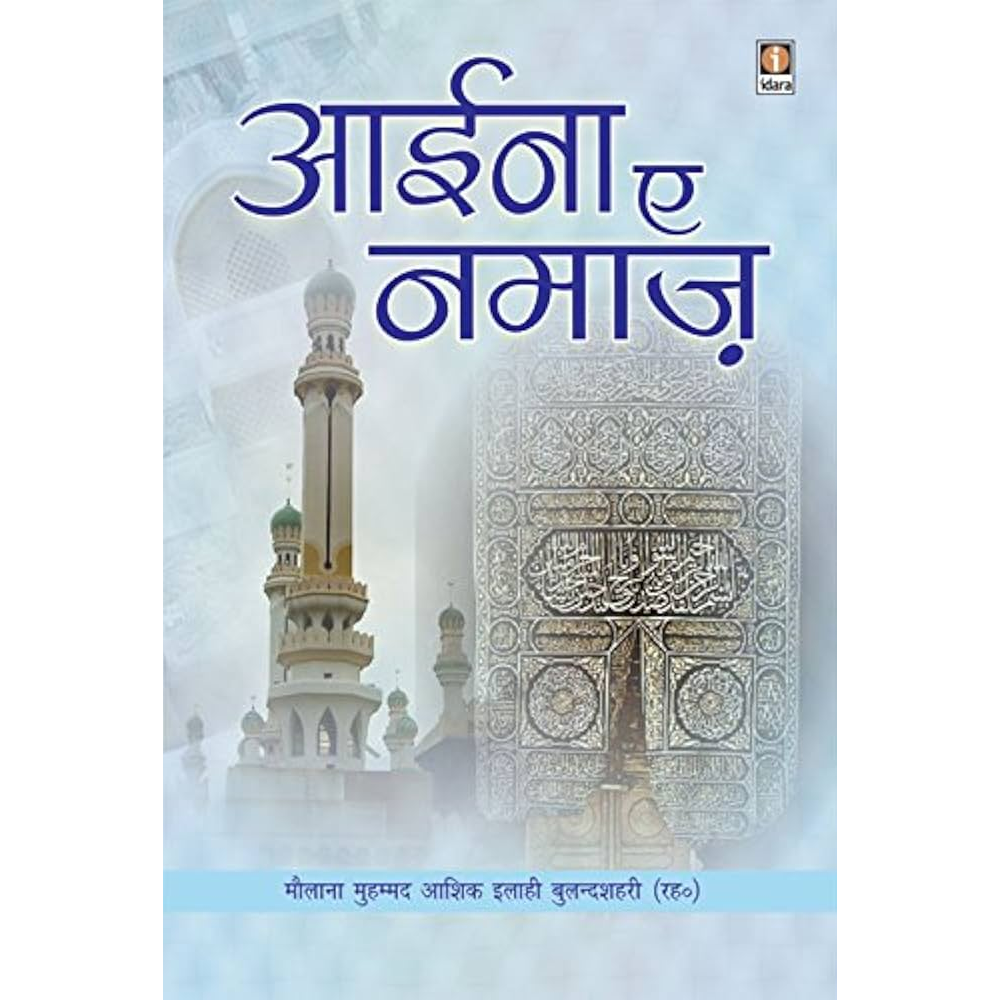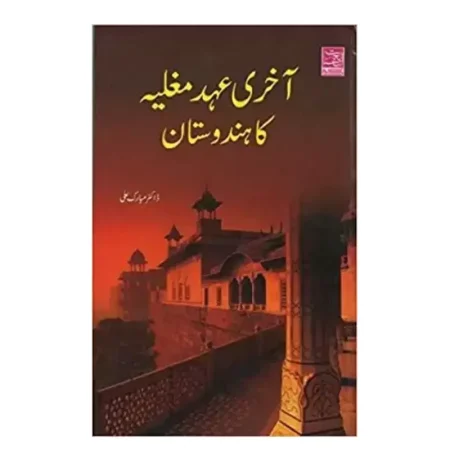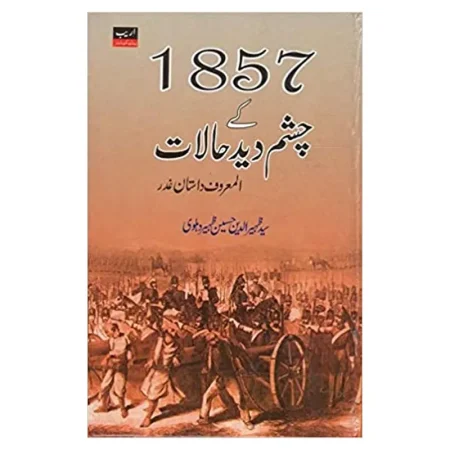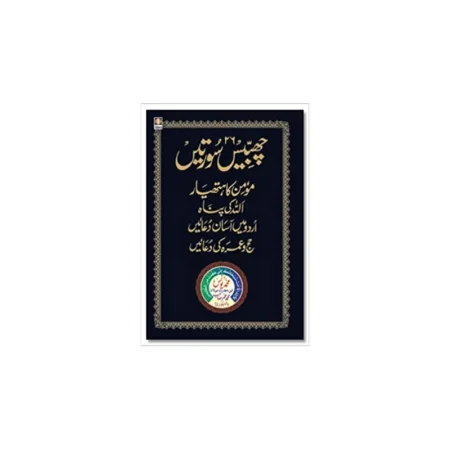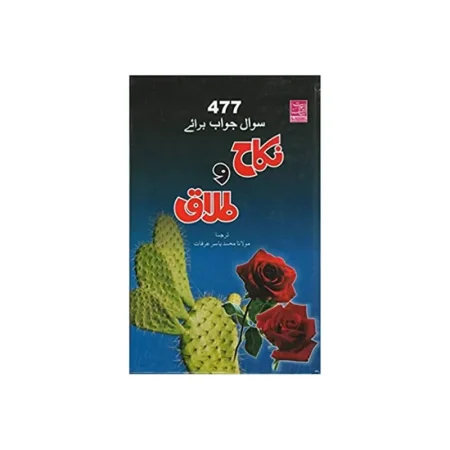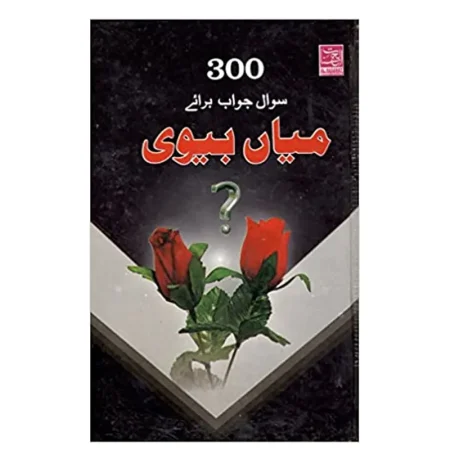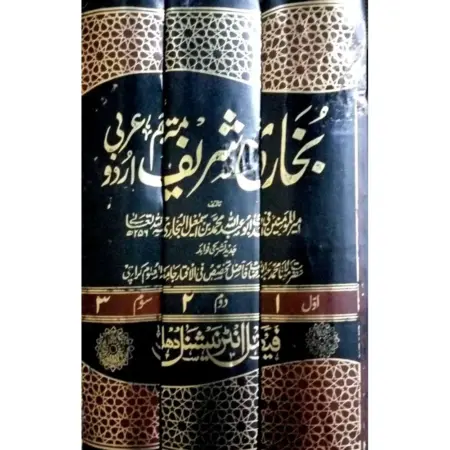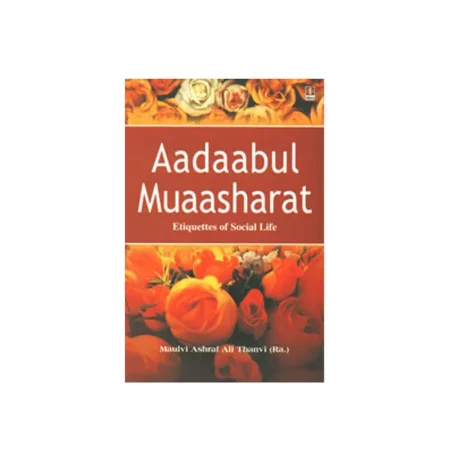The Reconstruction Of Religious Thought In Islam With Notes And Refrerences Sir Muhammad Iqbal Adam Publisheers English (Hb)
₹425.00 Original price was: ₹425.00.₹320.00Current price is: ₹320.00.
- Key Themes and Intellectual Contributions
- ✅ Religious Experience as Epistemology
- Iqbal begins by asserting that religious experience is a legitimate source of knowledge, not inferior to reason or empirical observation. He argues that:
- Revelation is not irrational, but supra-rational
- The Qur’an encourages reflection and inquiry
- Sufism, when properly understood, refines the inner faculties of perception
- This sets the tone for a dynamic and experiential understanding of Islam, rooted in both heart and intellect.
- ✅ God and Prayer: A Living Relationship
- In his third lecture, Iqbal redefines God not as a static metaphysical entity, but as the Ultimate Ego—a Being who interacts with creation. Prayer, then, becomes:
- A dialogue between finite and Infinite
- A means of spiritual empowerment and moral clarity
- A way to actualize divine attributes within the self
- Iqbal’s conception of God is deeply Qur’anic yet philosophically robust, challenging both pantheism and deism.
- ✅ The Human Ego and Immortality
- Iqbal’s fourth lecture is a masterclass in Islamic psychology and metaphysics. He presents the human ego as:
- A unique, evolving self
- Capable of freedom, creativity, and moral choice
- Destined for immortality through spiritual growth
- Delivery & Return
How Does The Delivery Process Work ?
- Once Our System Processes Your Order, Your Products Are Inspected Thoroughly To Ensure They Are In Perfect Condition.
- After They Pass Through The Final Round Of Quality Checks, They Are Packed And Handed Over To Our Trusted Courier Partners.
- Our Delivery Partners Then Bring The Package To You At The Earliest Possibility. In Case, They Are Unable To Reach Your Provided Address Or At A Suitable Time, They Will Contact You To Resolve The Issue.
How Are Items Packed ?
We Package Our Products In Corrugated Boxes, Which Are Covered With 3 Layer Protection. Each Individual Product Is Packed In Bubble Wrap While Fragile Items Like Bottles Are Safely Secured With Additional Bubble Wrap. We Pride Ourselves On The Quality Of Our Packaging.What Is The Range Of Locations To Which Daarul Kitab & Islamic Store Ships It’s Products ?
We Shipped Our Products Pan India!My Order Has Been Shipped, How Can I Track It ?
Once Your Order Has Been Dispatched, You Will Receive An Email And SMS With Tracking Details.You Can Track The Status Of Your Order Within 24 – 48 Hours After Your Order Is Dispatched From Our Warehouse.Following Are Some Of Our Trusted Courier Partners: eKart Logistics, BlueDart, Delhivery, Xpressbees, Ecom Express, DTDC & ShadowfaxWhat Is The Estimated Delivery Time ?
It Takes 3-7 Business Days To Deliver The Order Once Order Has Been Dispatched.Though We Keep 95% Of Our Catalog In Our Inventory, Certain Products Need To Be Sourced Directly From The Brand Itself So That We Can Live Up To Our Promise Of Providing Fresh, Non-expired Products.Are There Any Shipping Charges Applicable To My Order ?
We Have Different Shipping Charges For Different Zones Which Start From 60₹ To 100₹ Is Applied To All Orders Below ₹1999, While There Is Free Shipping For All Orders Above ₹1999Note: Please Take A Video/Photos While Opening A Order You Received We Need It If Anything Goes Wrong With You Order Between Journey Of Our Warehouse To Your Doorstep, If You Find Order Is Damaged Or Intact Please Do Not Accept The Order Delivery .
Disclaimer: Any Complaints Related To Product/Delivery Should Be Brought To Our Notice Within 48 Hours From The Time Of Delivery.
Help
Give us a shout if you have any other questions and/or concerns. Email: support@daarulkitab.com Phone: +918755553311 WhatsApp: +918755553311
The Reconstruction Of Religious Thought In Islam With Notes And Refrerences Sir Muhammad Iqbal Adam Publisheers English (Hb)


📘 The Reconstruction of Religious Thought in Islam – A Visionary Manifesto for Islamic Intellectual Revival
The Reconstruction of Religious Thought in Islam is not merely a book—it is a philosophical call to action. Authored by Sir Muhammad Iqbal (1877–1938), the poet-philosopher of the East, this work is a collection of seven groundbreaking lectures delivered between 1928 and 1932 in Madras, Hyderabad, and Aligarh. In these lectures, Iqbal reimagines the foundations of Islamic thought in light of modern philosophy, science, and spiritual experience.
Published in a durable hardcover edition by Adam Publishers, this volume includes notes and references, making it ideal for scholars, students, and seekers who wish to engage deeply with Iqbal’s intellectual legacy.
🖋️ About the Author: Sir Muhammad Iqbal
Iqbal was a polymath—poet, philosopher, barrister, and visionary. He is revered as:
The spiritual father of Pakistan
A reviver of Islamic philosophical tradition
A bridge between classical metaphysics and modern rationalism
His poetry in Urdu and Persian is celebrated for its emotional intensity, but his prose—especially in Reconstruction—reveals his rigorous intellect and reformist zeal. Iqbal’s goal was to awaken the Muslim mind, urging it to reclaim its creative spirit and engage with the modern world without losing its spiritual essence.
📖 Structure and Chapter Overview
The book comprises seven lectures, each addressing a core dimension of Islamic thought:
Knowledge and Religious Experience
The Philosophical Test of the Revelations of Religious Experience
The Conception of God and the Meaning of Prayer
The Human Ego – His Freedom and Immortality
The Spirit of Muslim Culture
The Principle of Movement in the Structure of Islam
Is Religion Possible? (added in the 1934 Oxford edition)
Each lecture is supported by footnotes and scholarly references, drawing from Qur’anic verses, Hadith, classical Islamic scholars (like Ghazali, Ibn Sina, Rumi), and Western philosophers (like Kant, Bergson, Nietzsche).
🌿 Key Themes and Intellectual Contributions
✅ Religious Experience as Epistemology
Iqbal begins by asserting that religious experience is a legitimate source of knowledge, not inferior to reason or empirical observation. He argues that:
Revelation is not irrational, but supra-rational
The Qur’an encourages reflection and inquiry
Sufism, when properly understood, refines the inner faculties of perception
This sets the tone for a dynamic and experiential understanding of Islam, rooted in both heart and intellect.
✅ God and Prayer: A Living Relationship
In his third lecture, Iqbal redefines God not as a static metaphysical entity, but as the Ultimate Ego—a Being who interacts with creation. Prayer, then, becomes:
A dialogue between finite and Infinite
A means of spiritual empowerment and moral clarity
A way to actualize divine attributes within the self
Iqbal’s conception of God is deeply Qur’anic yet philosophically robust, challenging both pantheism and deism.
✅ The Human Ego and Immortality
Iqbal’s fourth lecture is a masterclass in Islamic psychology and metaphysics. He presents the human ego as:
A unique, evolving self
Capable of freedom, creativity, and moral choice
Destined for immortality through spiritual growth
He critiques deterministic philosophies and calls for a reaffirmation of human dignity, aligning with Qur’anic verses like “We have honored the children of Adam…” (17:70).
✅ Muslim Culture and the Principle of Movement
Iqbal’s fifth and sixth lectures are a blueprint for civilizational renewal. He argues that:
Islamic culture is rooted in Tawhid (unity)
The Qur’an promotes ijtihad (independent reasoning)
Shari‘ah must evolve with changing contexts, guided by maqasid (objectives)
He famously declares:
“The ultimate spiritual basis of all life, as conceived by Islam, is eternal and reveals itself in variety and change.”
This makes Iqbal a precursor to modern Islamic reformers, advocating for a living, breathing jurisprudence.
✅ Is Religion Possible?
In the final lecture, Iqbal addresses the modern skeptic, asking whether religion can survive in an age of science and secularism. His answer is a resounding yes—if religion:
Embraces intellectual humility
Engages with scientific discoveries
Offers a moral compass and spiritual depth that science alone cannot provide
He concludes with a vision of Islam as a creative force, capable of guiding humanity toward justice, beauty, and transcendence.
🎨 Language and Style
Iqbal’s prose is:
Dense and philosophical, yet poetic in tone
Rich in metaphor, drawing from nature, scripture, and classical literature
Interdisciplinary, weaving together theology, psychology, sociology, and metaphysics
This edition by Adam Publishers includes editorial notes and references, helping readers navigate Iqbal’s complex ideas with clarity and context.
Related Products
- Aakhri Ahd-E-Mughliya Ka Hindustan Dr Mubarak Ali Al Hasanat (Urdu)
2 in stock
- 1857 Isvi Ke Chashmdeed Halat ( Maroof Dastane Gadar)
2 in stock
- 26 Chabbis Suraten Mohd Yunus Ibn Hazrat Maulana Mohd Umar Sahab Palanpuri Ra) Farid Arabic/Urdu
3 in stock
- Hardcover
- Publisher:?Al-Hasanat; 1 edition (2014)
2 in stock
300 Sawal Jawab Baraye Miyan Biwi (Hafiz Abdullah Saleem) Al Hasanat Urdu
- Effective Communication: Communication is the cornerstone of any healthy relationship. The book provides guidance on how spouses can express their feelings and concerns effectively while maintaining respect and empathy. It also offers tips on avoiding misunderstandings and resolving conflicts peacefully.
- Roles and Responsibilities: The book outlines the roles of husbands and wives as prescribed in Islamic teachings. It emphasizes the importance of fulfilling one’s duties while supporting the other partner, ensuring that both spouses work together to create a balanced and harmonious household.
- Love and Emotional Intimacy: Emotional intimacy is an essential aspect of marriage. The book provides practical advice on how to maintain a loving and respectful relationship, highlighting the value of compassion, care, and understanding.
- Conflict Resolution: Conflicts are inevitable in any marriage, but how they are handled determines the strength of the relationship. The book offers strategies for addressing disputes constructively, encouraging forgiveness, patience, and reconciliation.
- Spiritual Growth: Marriage is seen as a partnership that not only fulfills worldly needs but also contributes to spiritual growth. The book encourages couples to engage in acts of worship together, such as praying, reading the Quran, and seeking knowledge, to strengthen their bond with Allah and each other.
- Family and Social Life: The book also touches on topics related to family dynamics, parenting, and interacting with extended family and community. It provides guidance on how to balance the responsibilities of married life with other social obligations.
1 in stock
1 in stock
- Paperback
- Publisher: Idara Impex (2006)
1 in stock
- Aadaabul Muaasharat Etiquettes Of Social Life Maulvi Ashraf Ali Thanvi Idara (English)
2 in stock
- Parents : Islamic Rights & Responsibilities
1 in stock
1 in stock
- Paperback
- Publisher: Goodword Books
- Language: English
2 in stock
- Zikr-E-Rasool S.A.W. ( Maulana Abdul Majid ) Lucknow Urdu
6 in stock


